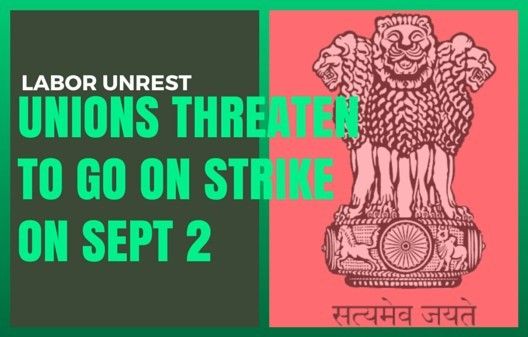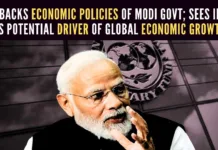
Navin Upadhyay
New Delhi
Modi, Trade Union (TU) leaders fail to end the deadlock.
While farmer representatives and political opponents are up in arms against the Modi government’s land acquisition bill, the Bharatiya Janata Party (BJP)-led alliance at the Center is all set to open another war front — this time against the working class by proposing to bring in a “hire and fire” labor policy in a country with no state-sponsored social security.
As part of an exercise to garner support for the controversial measures, Prime Minister Narendra Modi held talks with trade union representatives on July 19, a day before of the meeting of the Indian Labor Conference (ILC).
The ILC is expected to announce major agitation programmes to oppose the Government attempt to radically change the labour laws to favour corprorates and entrepreneurs. Modi is also expected to deliver the inaugural speech at the ILC.
The PM’s meeting did not end the deadlock between the Government and TUs. After the meeting, the trade unions remained committed to go ahead with nationwide strike on September 2. All major trade unions have called for the strike against the Center’s move to dilute the Labor laws and Factories Act.
“There is no ray of hope. The PM did not offer any assurance to consider our demands. We have no option but to go on a nationwide strike on September 2…”
– Gurudas Dasgupa, All India Trade Union Congress General Secretary
The leaders of 11 major trade unions who met the PM over tea expressed serious concerns over the government’s move to bring anti-workers amendments in labor laws…
Ahead of the PM’s meeting with the Trade Union representatives, an inter-ministerial panel headed by Finance minister Arun Jaitley held wide-ranging talks with the Trade union leaders. Major trade unions have been highly critical of the government over non-implementation of their ten-point charter that includes demand for providing social security to the workers.
The Modi’s government proposed labor reforms is expected to make it easy for the employers to give pink slips to the workers. As per the proposed changes, any industry with a labor force up to 300 will not require any permission from the government to lay off its workers.
Yet another change could exempt units employing up to 40 workers from 14 labor laws. Labor Minister Bandaru Dattatreya has said that the Bill would be tabled in the monsoon session of parliament beginning July 21.
The Government also proposed to make it difficult for workers to form trade unions or go on strike.
Labor union are opposing the proposed amendments contending that just around 8% of private sector workers enjoy any job protection, and the rest are already at the mercy of the employer.
The trade unions have also criticized the tendency to nominate workers as consultants and deprive them of benefits like provident funds, medical allowance and leave encashment (Paid Time Off). This dubious practice is flourishing in the media sector. In such cases, the workers perform the task of a regular employee but are shown on paper as consultants. If the authorities takes the trouble to carry out inspection of newspaper offices in Delhi, they will be shocked to see the extent of to which this nefarious trend has caught up with the employers.
While the government argues that a corporate-friendly labor policy is essential to bring in investment in the country, the labor unions are of the view that such an amendment could be disastrous in a country where there are no socials security provisions. Labor leaders have regularly pointed out that such policy could be acceptable in Europe and the USA, where an unemployed workers, can live off dole, but in India introduction of such measures could be sure-fire way to ignite as big unrest.
The left parties, the Congress and major opposition parties have already warned the government that they will not allow it to pass such “draconian” amendments in the parliament.
The labor unrest is brewing for quite sometime. On May 26, coinciding with the completion of one year of the Modi government in office, 11 trade unions announced to start nationwide stir from September 2 against the government’s anti-labor policies. Interestingly, the BJP’s trade union wing — the Bharatiya Mazdoor Sangh (BMS) — is also part of the mobilization effort against the government.
“The government’s aim in aggressively pushing through sweeping changes in labour laws is nothing but to push out overwhelming majority of workers out of the coverage of all labor laws and to drastically curb the trade union rights,” said the declaration signed by major central trade union leaders.
The government has been over-busy in amending all labor laws to empower the employers with unfettered rights to hire and fire and stripping the workers and trade unions of all their rights and benefits,” the declaration added.
However, under intense pressure to deliver on at least some key promises it has made to the international investment committee, the Modi government is not ready to go back on the amendments. It will be interesting to see how it tackles with the growing unrest among the farmers and the working class.
- The rise of Patanjali:An Indian yogi’s challenge to MNC giants - January 26, 2016
- Padmas – a blend of excellence, politics and ideology - January 25, 2016
- Scared of hispopularity, British wanted to hang Netaji - January 24, 2016










